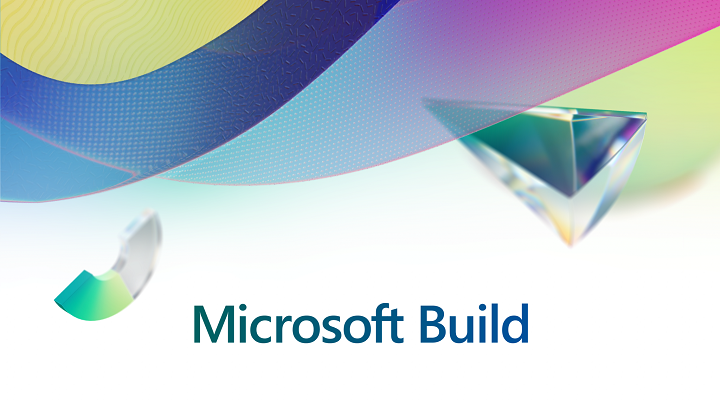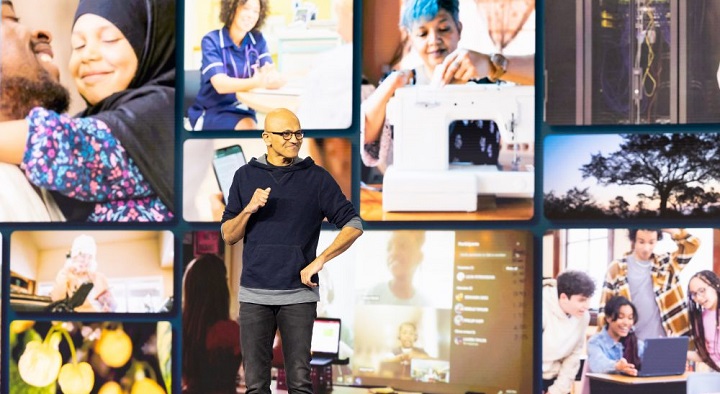
Microsoft has recently held its annual flagship event for developers, Microsoft Build 2023, with exciting announcements showcasing new tools and services developers can use to innovate the future.
The first half of the year saw several new artificial intelligence (AI)-powered releases such as the revamped Bing search engine, Edge browser, and Microsoft 365 Copilot. Microsoft kept that momentum with this year’s Microsoft Build, focusing heavily on AI. The company announced extensive plans of expanding the use of AI across its apps and services, including Windows 11, Microsoft 365, and more.
More than 50 new AI innovations were introduced at Microsoft Build 2023—here are the five biggest announcements to watch out for:
AI Copilot will soon be available on Windows 11
Towards the end of 2022, Microsoft talked about how AI is going to revolutionize the way people work on Windows. Fast forward to this week’s Build, where Microsoft announced that it will be bringing its AI-powered Copilot to its biggest canvas of all: Windows.
Building on the same AI personal assistant that Microsoft previously integrated into Bing, Microsoft 365, and GitHub, the new Windows Copilot will now live within the Windows 11 taskbar. Microsoft said it will be the first PC platform that centralizes AI assistance to help people get things done more efficiently and make every user an empowered user of Windows. Combined with the power of Bing and plugins, users can focus on bringing their ideas to life, completing complex projects and collaborating instead of spending energy finding, launching and working across multiple applications.
Microsoft will start rolling out the preview version of Windows Copilot to Windows 11 users in June.
Copilot Stack enables common extensibility across all surfaces
Over the past months, Microsoft has launched several iterations of Copilot, all built under one common architectural stack. Now, the company is making Copilot Stack available so that everyone can build and customize their own Copilots for their applications.

Developers can now use a singular platform to build plugins that work across both consumer and business surfaces. The Copilot Stack will have everything from the AI infrastructure, the foundation models, the AI orchestration all the way up to the Copilot and its extensibility. In fact, Microsoft shared that it will have common extensibility and interoperability across all surfaces including ChatGPT, Bing, Microsoft 365 Copilot, Windows Copilot, and even first- and third-party plugins.
Through this feature, Microsoft creates an opportunity for developers to reach a wider breadth of users across all surface areas.
Bing is coming to ChatGPT
Microsoft is bringing the best of Bing to the ChatGPT experience. The company announced that Bing will function as the default search engine on ChatGPT, which means that the chatbot will now incorporate a top-notch search engine within its system, enabling it to deliver more current and precise answers by accessing information directly from the web.
This latest update of ChatGPT allows users to receive responses based on extensive web searches and data, accompanied by citations for further information, all conveniently provided within the chat. The new feature is now available to ChatGPT Plus subscribers and will soon be available to free users via a plugin.
Azure AI Studio now makes it possible to build and deploy your own AI bots
Microsoft’s new Azure AI Studio is the full lifecycle toolchain that aims to help developers build, operationalize, and deploy their own next-generation AI apps and Copilots.
Through the Azure AI Studio, Microsoft simplifies the steps needed to integrate external data sources into Azure OpenAI Service. The platform offers built-in AI safety and vector indexing, and allows developers to build and train their own models, ground Azure OpenAI Service and operational support system models using their own data, create prompt workflows, and more.
Microsoft Fabric is the new data analytics platform for the era of AI
Data has become a growing commodity in the AI and digital space, and Microsoft announced perhaps its biggest launch of a data product since the SQL Server. A new product that took years of development before finally being presented on this year’s Build stage, Microsoft Fabric is a platform for data analytics that brings together compute and storage, merges all of the full analytics stack product experiences, fuses governance with analytics, and unifies business models across all types of analytics workloads—all connected to a single data repository.
On Microsoft Fabric, customers of all technical levels can experience capabilities in a single, unified experience. And through this unification of data, Microsoft aims to fuel the next generation of AI applications.

“We have fantastic momentum building, and these five launches only offer a glimpse of the innovative future Microsoft is building,” said Peter Maquera, Microsoft Philippines Chief Executive Officer. “We will continue to roll out more exciting announcements in the weeks and months to come, fundamentally driven by our mission and exponentially amplifying what every person is able to do. We’re excited for what this means for the Philippines and committed to bringing these tools into the hands of individuals and organizations across all generations, sectors, and locations in the country.”

